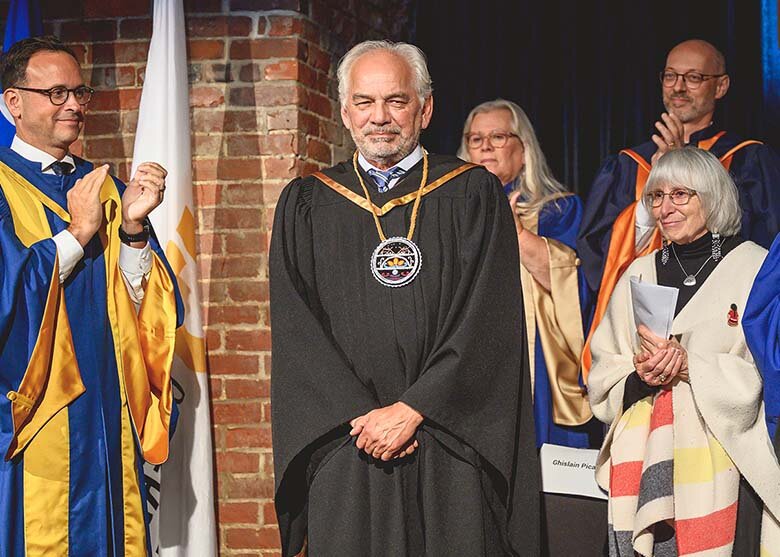Faculty
HEC Montréal’s ERPsim Lab receives grant of nearly $2 million
April 30, 2025
HEC Montréal, in partnership with SAP Canada, Université du Québec à Montréal (UQAM) and Université de Sherbrooke (UdeS), is launching an innovative project to train future leaders and eventually help Canadian companies better leverage data using artificial intelligence. This project is part of the Alliance program of the Natural Sciences and Engineering Research Council of Canada (NSERC) and will receive nearly $2 million in funding over a -year period.
At the heart of this initiative is the Business Builders learning platform, developed by the ERPsim Lab team at HEC Montréal in collaboration with SAP Canada. This game-based tool, which is available free of charge to university and college students, will integrate new research developments. It will enable users to acquire advanced data visualization skills more quickly and independently.
The main purpose of this technology is to make data learning and interpretation more intuitive and optimize real-time decision-making. It will also help reduce the costs associated with common data visualization errors.

Théophile Demazure, Patrick Charland, Olivier Caya and Pierre-Majorique Léger
Research team
The project is led by Pierre-Majorique Léger, Full Professor, Department of Information Technologies and Director of the ERPsim Lab at HEC Montréal. His research team comprises Théophile Demazure, Assistant Professor in the Department of Information Technologies at HEC Montréal, Olivier Caya, Full Professor of Information Systems at the School of Management, Université de Sherbrooke, and Patrick Charland, Full Professor of Science and Technology Didactics at UQAM.
A strategic partnership with SAP Canada
SAP, the world leader in enterprise applications and business intelligence, is actively involved in this project, while providing financial and technological support, including access to SAP Analytics Cloud.
Enriching knowledge
The results of this research will also be published in scientific journals and integrated into academic and professional training courses, thus promoting the adoption of best practices in data management.
Find out more
Olivier Caya [in French only]
Patrick Charland [in French only]











